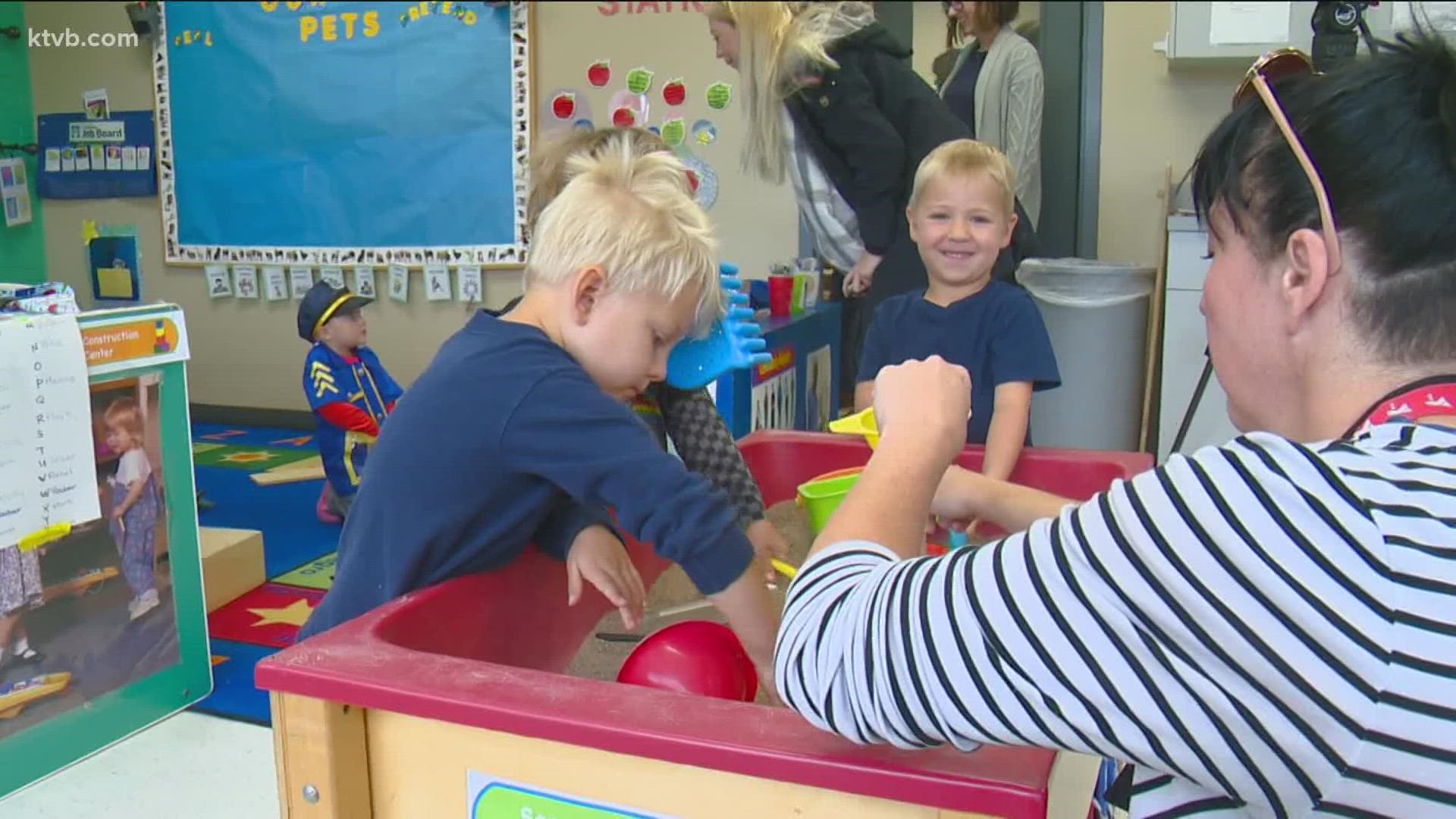BOISE, Idaho — Conversations surrounding free all-day kindergarten, the benefits behind it and how lawmakers want it paid for are starting up once again, as the 2022 legislative session is just weeks away.
"Really, this isn't new," District 18 Sen. Janie Ward-Engelking, D-Boise, said. "This is a bill I've been working on for nine years."
Ward-Engelking worked as a teacher for 33 years before retiring. When it comes to kindergarten programs in the state of Idaho, she described it as a "mixed bag" and believes that's why there are problems.
Kindergarten programs vary by district. Several have passed property tax levies to fund all-day programs, while others offer optional all-day learning programs for which participating families must pay monthly tuition.
Some school districts will only enroll students into all-day kindergarten when they are considered "at-risk." Ward-Engelking said "at-risk" students are children who score below a certain level, and the school will use their literacy money to fund their all-day kindergarten program.
"What's happening then is we have children that are receiving full-day, optional kindergarten and we have children that aren't, either because they can't afford it or they can't afford to transport," Ward-Engelking said. She added there could be parents and families who are able to pay for full-day learning, but they may not have busing.
In her eyes, it's become a fairness issue.
"We want kids to have a uniform, thorough education, and it's not uniform if some kids get it and some kids don't," Ward-Engelking said.
A study from Bluum, a nonprofit education organization in Idaho, shows data from Fall 2020 to Spring 2021 that full-day kindergartners made more progress than partial-day students. All-day students' Idaho Reading Indicator (IRI) scores at first were in the 46th percentile and ended in the 52nd percentile, whereas half-day students began the study in the 54th percentile and ended in the 52nd percentile.
"We saw that the students who take full-day kindergarten catch up during that kindergarten year and have more support than the students that have partial kindergarten," Preston Faulk, a senior analytics consultant for public impact explained on a media briefing Thursday. "It pays off in terms of them catching up to that gap that's there before."
Bluum's study also shows progress is mostly seen in economically disadvantaged students who begin at a lower average. Those students went from the IRI scores of being in the 35th percentile to 43rd.
The organization said another advantage to all-day kindergarten is the boost to kids' confidence and social skills.
"We know that if we get those kids that are struggling or if we get kids in the system early, we can make huge headway," Ward-Engelking said.
The senator sponsored a bill in the 2021 legislative session to use state funds for all-day kindergarten across Idaho, which didn't pass. Even with strong support from both sides.
"This is really a good twofer," said House Minority Leader Ilana Rubel, D-Boise. "Not only does it improve the performance of kids in the state, but it really would reduce people's property taxes. A lot of folks in this state are paying property taxes to pay for all-day kindergarten."
With the State of Idaho having a $1.6 billion budget surplus, lawmakers are feeling hopeful heading into the 2022 session.
"If we can deliver better property tax relief, better education outcomes and we have the money to do it, it seems like excuses are running out," Rubel said.
Ward-Engelking estimates the cost to pay for optional, all-day kindergarten is roughly $42 million to $50 million.
Gov. Brad Little told KTVB's Doug Petcash on Viewpoint that he has plans to use the budget surplus to "address education" in the state.
Watch more Local News:
See the latest news from around the Treasure Valley and the Gem State in our YouTube playlist:

